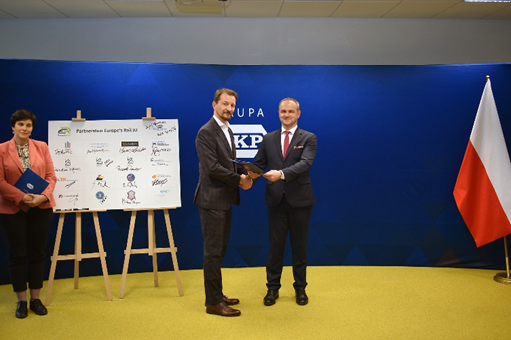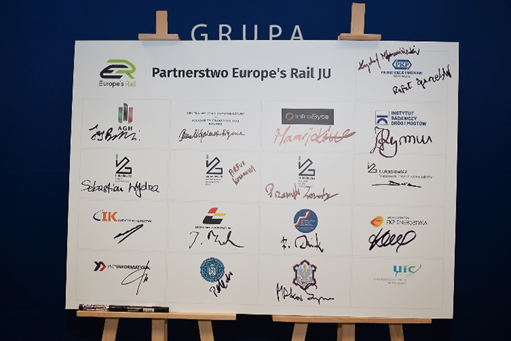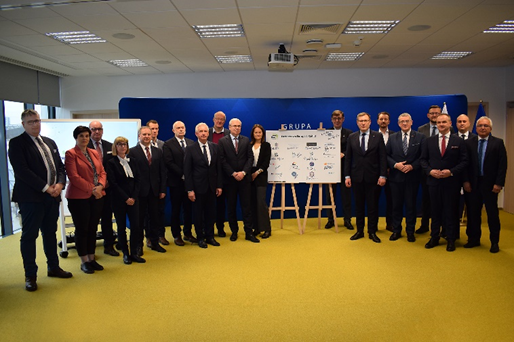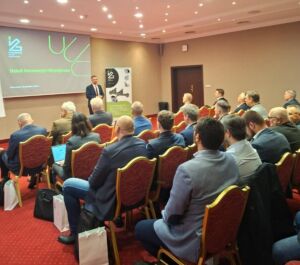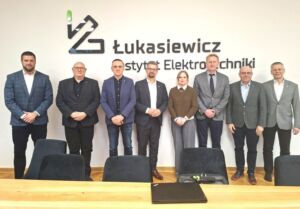On 18 January this year, the inaugural meeting of the research and development consortium of 17 entities from Poland set up within the framework of Europe’s Rail JU Partnership, which in turn includes the most important players in railway-related fields, took place. The culmination of the meeting was the signing of the agreement by all Project Partners. Łukasiewicz – Institute of Electrical Engineering was represented by Director Sebastian Wydra.
The RD consortium agreement was signed by representatives of PKP S.A. (consortium leader), AGH University of Science and Technology, Centralny Port Komunikacyjny, Infrabyte Sp. z o.o., Instytut Badawczy Dróg i Mostów, Instytut Kolejnictwa, Łódzka Kolej Aglomeracyjna Sp. z o.o., Międzynarodowy Związek Kolei, Państwowa Uczelnia Zawodowa im. Ignacego Mościcki, PKP Energetyka S.A., PKP Informatyka Sp. z o.o., Poznan University of Technology and the Military University of Technology. Three other Łukasiewicz Institutes have also joined the consortium: Łukasiewicz – Poznan Institute of Technology, Łukasiewicz – Institute of Innovative Technologies EMAG and Łukasiewicz – Warsaw Institute of Technology.
Łukasiewicz – Institute of Electrical Engineering is the content coordinator for one area of “Europe’s Rail Flagship Project 4 – Sustainable and green rail systems”. This is the part where, after the completion of the planned three projects, a new model station will be built and a standard for refuelling hydrogen locomotives in Europe will be developed, among other things. The first step, implemented by Łukasiewicz –IEL, is the development of both, a mechanical and communication solution for an interoperable hydrogen refuelling station. An independent task is to create guidelines for the design of a modular railway station using modern energy management technologies.
The resulting consortium plans to fundamentally change rail services to make them energy-efficient, user-friendly and environmentally friendly by 2031. This is also to create a more attractive and resilient mode of transport and to contribute to the objectives of European policies on sustainable transport (Climate Neutral Europe, European Green Deal, Sustainable and Intelligent Mobility Strategy).
The project is implemented as part of Europe’s Rail JU funded by the European Commission under the Research and Innovation Programme (2021-2027). Seventy-four entities (23 lead beneficiaries and 51 associates) from, among others, France, Spain, Italy, Norway, the Netherlands, Germany, Austria, Sweden and Poland.
The consortium is made up of renowned world-class partners, which has succeeded in creating a broad value chain and know-how.
